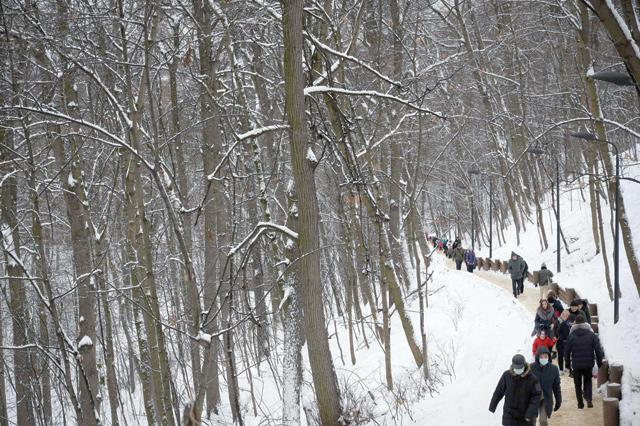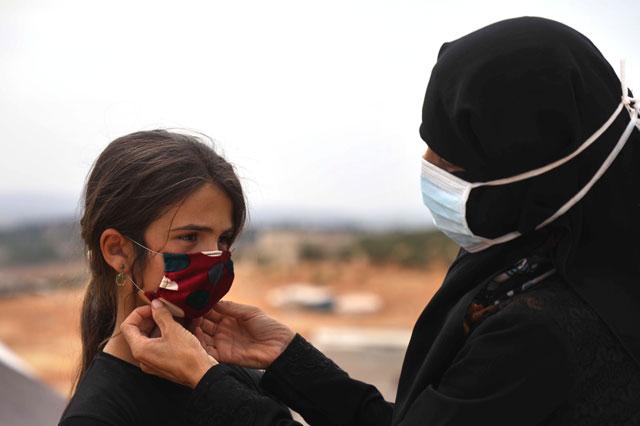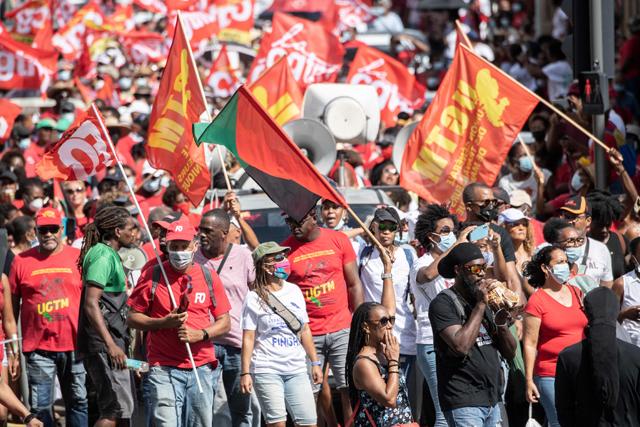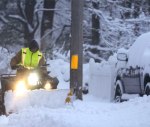You are here
Paris under curfew as Europe battles soaring virus caseload
By AFP - Oct 19,2020 - Last updated at Oct 19,2020
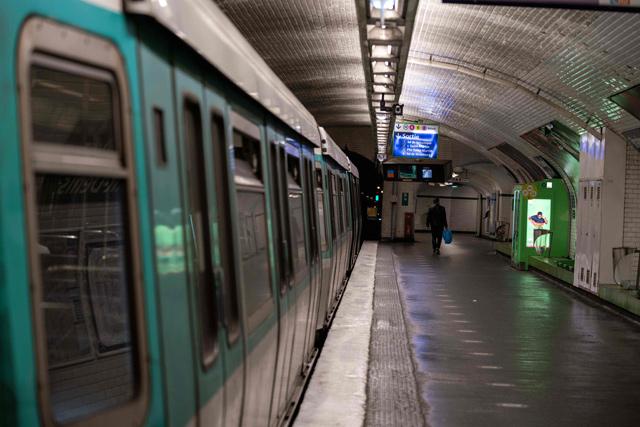
A man walks on the deserted platform of a metro station, on Saturday in Paris, at the start of a nighttime curfew implemented to fight the spread of the COVID-19 pandemic caused by the novel coronavirus (AFP photo)
PARIS — Millions of Europeans faced tough new coronavirus restrictions on Saturday as governments stepped up efforts to slow the surge in infections, after the World Health Organisation reported a "very concerning" 44 per cent rise in European cases over one week.
From Saturday evening, Paris and several other French cities go under a nighttime curfew that will last at least a month. England is banning mixed household gatherings in the capital and other areas, and Italy's most populous region is limiting bar openings and suspending sports events.
The need for action in France was underlined as the country recorded another record for new cases, with over 32,000 registered in 24 hours.
Global cases of the disease, which has killed more than 1.1 million people around the world, have been soaring beyond levels seen in the first wave earlier this year, when many countries resorted to national lockdowns to get control of the crisis.
As well as the death toll, the pandemic has wrought social and economic havoc across the world.
The United States, which has suffered the worst toll with more than 218,000 fatalities, on Friday revealed a record deficit of $3.1 trillion in the fiscal year ended September 30.
It also announced that the number of cases there had passed eight million, while global daily infections also hit a new record.
In a bid to stem the worrying rise in infections and in the hope of heading off a return to full lockdowns, many governments have tightened measures to control the spread of the pandemic — even if some dissenters are fighting back in the courts.
Curfews, closures, legal battles
About 20 million people in the Paris region and eight other French cities were facing a 9 pm — 6 am curfew from Saturday after cases surged in what has once again become one of Europe's major hotpots.
Many restaurant owners are unhappy at the hit their businesses will take.
“Closing at 9:00pm will have no effect [on the epidemic],” said Gerard, the manager of a Toulouse restaurant. “They’re not attacking it in the right way.”
Britain is the hardest-hit country in Europe, with over 43,000 deaths from almost 700,000 cases.
But as the government there ramped up restrictions, banning indoor meetings between members of different households in London and several other English cities, there was growing criticism from some quarters.
Under the new measures, about 28 million people — half of England’s population — are now subject to tight social restrictions.
Some officials in northwest England have objected to their cities being placed on the highest level of a new three-tier alert system.
Prime Minister Boris Johnson has acknowledged that local restriction policies cannot be “pain free”.
But the hope is that these measures will be enough to head off another full lockdown.
Northern Ireland meanwhile shut down pubs and restaurants on Friday for a month and extended the school holidays.
Surge in cases, tighter measures
German Chancellor Angela Merkel urged citizens to stay at home whenever possible after 7,830 cases emerged over 24 hours.
“What will determine winter and our Christmas will be decided in the weeks ahead” by how people react now, she said in her weekly podcast address.
But on Friday, a Berlin court overturned an order for restaurants and bars to close early, the latest legal setback for efforts by Germany’s national and local governments to restrict coronavirus transmission.
In Italy, the wealthy northern region of Lombardy worst hit by the first wave of the virus in February, has ordered all bars to shut at midnight.
Slovakia announced Saturday it would test everyone over 10 for the virus, as infections surged there.
“Testing will be free of charge,” Prime Minister Igor Matoviche told reporters in the country of 5.4 million people, without specifying whether it will be mandatory or voluntary.
Poland, the Czech Republic and Belgium have all announced daily record caseloads.
In the Czech Republic, with record numbers of cases recorded, the government has asked the army to set up a field hospital of 500 beds outside Prague.
Belgium will impose its own curfew, from midnight until 5:00am, from Monday, and will also shut cafes and restaurants for four weeks.
And Poland has closed schools and colleges in major cities while restaurants will have to close from 9:00pm.
Austria, Slovenia and Hungary have all announced a surge in cases — in Slovenia, the compulsory wearing of masks in outdoor public spaces came into effect Saturday.
The death toll in Iran from the novel coronavirus pandemic has crossed the 30,000 mark, the health ministry announced Saturday.
By contrast, Israel is preparing to ease some lockdown restrictions from Sunday in the first phase of scaling back measures imposed last month to stem soaring novel coronavirus infection rates.
Austria’s Foreign Minister Alexander Schallenberg and Belgian Foreign Minister Sophie Wilmes became the latest politicians to test positive for COVID-19. And the Vatican announced that a case had been recorded at Santa Marta residence, where Pope Francis lives.
Related Articles
PARIS — Countries across the world tightened restrictions on their populations Saturday to fight a resurgence in the coronavirus, as the Eur
PARIS — Recorded deaths from the coronavirus neared 650,000 on Monday as the disease surged back at hotspots in Asia, Europe and the America
BERLIN — Germans faced the stark warning on Monday that they would be either "vaccinated, cured or dead" from COVID by the end of winter, as


